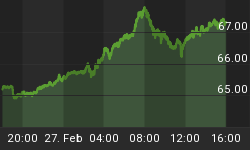Congress, with its insatiable appetite for spending, is set to pass yet another "supplemental" appropriations bill in the next two weeks. So-called supplemental bills allow Congress to spend beyond even the 13 annual appropriations bills that fund the federal government. These are akin to a family that consistently outspends its budget, and therefore needs to use a credit card to make it through the end of the month.
If the American people want Congress to spend less, putting an end to supplemental appropriations bills would be a start. The 13 "regular" appropriations bills fund every branch, department, agency, and program of the federal government. Congress should place every dollar in plain view among those 13 bills. Instead, supplemental spending bills serve as a sneaky way for Congress to spend extra money that was not projected in budget forecasts. Once rare, they have become commonplace vehicles for deficit spending.
The latest supplemental bill is touted as an "emergency" war spending bill, needed to fund our ongoing conflicts in the Middle East. The emergencies never seem to end, however, and Congress passes one military supplemental bill after another as the wars in Iraq and Afghanistan drag on.
Many of my colleagues argue that Congress cannot put a price on our sacred national security, and I agree that the strong, unequivocal defense of our country is a top priority. There comes a time, however, when we must take stock of what our blank checks to the military industrial complex accomplish for us, and where the true threats to American citizens lie.
The smokescreen debate over earmarks demonstrates how we have lost perspective when it comes to military spending. Earmarks constitute about $11 billion of the latest budget. This sounds like a lot of money, and it is, but it is a drop in the bucket compared to the $708 billion spent by the Pentagon this year to expand our worldwide military presence. The total expenditures to maintain our world empire is approximately $1 trillion annually, which is roughly what the entire federal budget was in 1990!
We spend more on defense than the rest of the world combined, and far more than we spent during the Cold War. These expenditures in many cases foment resentment that does not make us safer, but instead makes us a target. We referee and arm conflicts the world over, and have troops in some 140 countries with over 700 military bases.
With this enormous amount of money and energy spent on efforts that have nothing to do with the security of the United States, when the time comes to defend American soil, we will be too involved in other adventures to do so.
There is nothing conservative about spending money we don't have simply because that spending is for defense. No enemy can harm us in the way we are harming ourselves, namely bankrupting the nation and destroying our own currency. The former Soviet Union did not implode because it was attacked; it imploded because it was broke. We cannot improve our economy if we refuse to examine all major outlays, including so-called defense spending.















